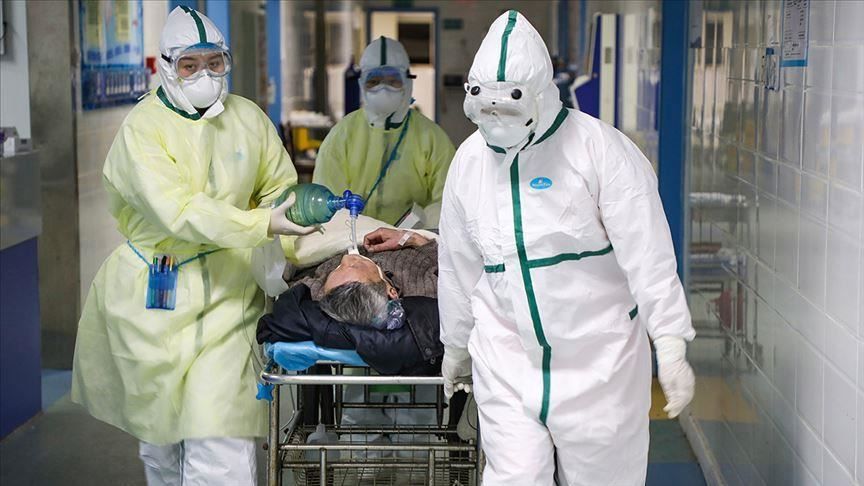How does COVID-19 compare to past pandemics?

A few minutes every morning is all you need.
Stay up to date on the world's Headlines and Human Stories. It's fun, it's factual, it's fluff-free.
Humans have been battling health emergencies throughout history. From the bubonic plague and smallpox to the 1918 pandemic and H1N1, disease has always been a part of life.
By taking a look at the cause and impact of other pandemics, societies can learn from the mistakes of the past and find a way to prepare for future outbreaks.
Ever since the coronavirus pandemic burst onto the scene, people have been making comparisons with past pandemics. Although this one is far from over, if we take a snapshot of where we are now and compare it to the pandemics of the past we can put the impact of COVID-19 in proper perspective.
With over 5.3 million official cases worldwide and more than 340,000 global deaths, how does the damage wrought up to this point by the coronavirus compare to past outbreaks?
The ancient killers
Contagions are well documented throughout human history. Evidence shows us that one of the oldest known outbreaks of plague took place in modern-day Sweden 5,000 – 6,000 years ago.
Researchers have concluded that advances in human culture and society, such as the emergence of permanent settlements and the trade that took place between them thanks to the use of wheeled-transport systems, helped spread the bacteria that caused the plague.
Although outbreaks of the plague emerged in waves, the bacteria, known as yersinia pestis, was responsible for some of the deadliest pandemics throughout human history, including the Black Death, which took place from 1346-1353.
Mostly affecting Europe but certainly not sparing the Middle East, North Africa, or Asia, some estimates indicate that the Black Death was responsible for killing up to 50% to 60% of Europe’s population at the time, as many as 50 million people on that continent alone.
Similarly, smallpox was responsible for an estimated 300 million deaths just in the 20th century.
The severity and recurrence of disease has long been a catalyst for advances in medical science and the bolstering of public health systems. Unlike the smallpox vaccine, which was immediately celebrated and ultimately led to the eradication of smallpox by 1980, the decline of the plague was not attributable to the discovery of a vaccine.
Although there is a vaccine for yersinia pestis, a bacteria that initially infects rodents and their parasites, like fleas, historians say that stronger public health and hygiene knowledge, such as the importance of hand washing, is what helped to reduce the impact of the disease.
Today, it is rare for the bacteria that causes the plague to infect humans, making the need for modern day vaccination for the plague largely unnecessary.
Recent outbreaks
More recent outbreaks are also worth comparing to COVID-19.
The pandemic of 1918, otherwise known as the Spanish Flu, was the deadliest recent outbreak in modern history. In just about a year it was estimated to have killed some 50 million people worldwide, including 675,000 in the United States.
Although some of the first cases of the 1918 flu were found in US military barracks in Kansas in March of that year, experts are unsure where the virus originated, despite its later designation as the Spanish Flu. That the virus was ultimately attributed to Spain was simply the result of wartime censorship on the part of countries participating in the First World War.
Some historians suggest that the outbreak may have played a hand in helping end the First World War, which officially ended in November 1918.
Like the 1918 pandemic, an outbreak in 2009 called Swine Flu was also caused by an H1N1 strain. Worldwide, the US Centers for Disease Control and Prevention (CDC) estimates that 151,700 to 575,400 people died from the Swine Flu in its first year of circulation. Unlike the coronavirus, most people affected by the Swine Flu, though not all, were 65 and younger.
Any takeaways?
In February, as concern over COVID-19 heated up, worst-case estimates from the CDC indicated that up to two-thirds of the US population might eventually get infected, approximately 214 million people. At worst, estimates claimed that 200,000 to 1.7 million people would die of the virus in the US.
Currently, just under 100,000 people have died in the US from the coronavirus according to official estimates. While there has reportedly been progress in the search for a vaccine, some experts urge caution, claiming it could still be months, or possibly years, before a viable vaccine becomes available.
With global connectivity and ease of travel a given for many in today’s societies, the threat of a fast-moving contagion will always be with us in some form. Nevertheless, past pandemics show us that human resilience and renewal are likely to follow.
“One of the amazing things about the human species – once harmless critters not much more than monkeys running around – is that, over time, we have become very creative,” says Agustín Fuentes, an evolutionary anthropologist at the University of Notre Dame.
“We’ve adapted to survive.”
Have a tip or story? Get in touch with our reporters at tips@themilsource.com
Sign up for daily news briefs from The Millennial Source here!




Comments ()